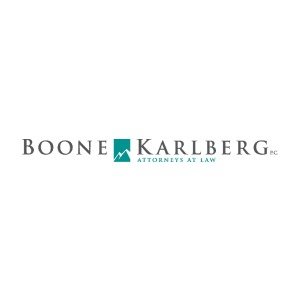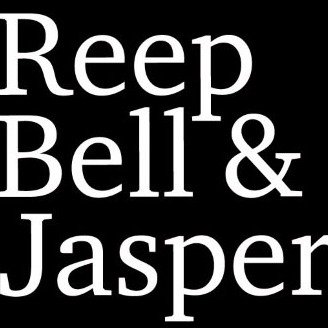Best Housing, Construction & Development Lawyers in Montana
Share your needs with us, get contacted by law firms.
Free. Takes 2 min.
Free Guide to Hiring a Real Estate Lawyer
Or refine your search by selecting a city:
List of the best lawyers in Montana, United States
About Housing, Construction & Development Law in Montana, United States
Housing, Construction, and Development law in Montana covers the legal framework surrounding real estate, land use, property development, construction, and residential housing matters. This area of law involves federal, state, and local regulations that dictate how properties can be built, improved, bought, sold, leased, and maintained. Whether you are a homeowner, landlord, tenant, builder, or developer, understanding these laws ensures you comply with Montana's unique regulatory environment and protect your interests.
Why You May Need a Lawyer
Engaging a lawyer specializing in Housing, Construction, and Development law can be vital in many situations. Common scenarios include:
- Disputes between landlords and tenants, including evictions and lease disagreements
- Issues with construction contracts or payments
- Building code violations or permit problems
- Boundary disputes with neighbors
- Buying or selling property, especially with complex title issues
- Resolving claims of defective construction or property damage
- Help navigating zoning or land use regulations
- Representation in administrative hearings regarding development projects
- Protecting your rights during housing or construction litigation
Legal counsel ensures you understand your rights and obligations while providing solutions tailored to your specific circumstances.
Local Laws Overview
Montana's Housing, Construction, and Development legal landscape is characterized by a blend of state statutes, municipal codes, and federal regulations. Here are key aspects you should know:
- Residential Landlord and Tenant Act: State law outlines the responsibilities and rights of landlords and tenants, covering security deposits, lease termination, habitability standards, and eviction procedures.
- Building Codes and Permits: Local governments adopt and enforce building codes to ensure structure safety and compliance. Permits are required for most construction and significant renovations.
- Subdivision and Land Use: Montana statutes regulate how land is subdivided and developed, requiring governmental approvals and sometimes public input for new developments.
- Zoning Regulations: Local zoning ordinances dictate how property can be used, affecting building sizes, commercial activity, and allowable uses in specific neighborhoods.
- Property Disclosure Requirements: Sellers of residential property must disclose known material defects to buyers.
- Homeowner Associations: Many developments are governed by HOAs, which enforce additional rules and covenants.
- Contractor Registration and Licensing: Builders and contractors must comply with state licensing and insurance requirements to operate legally.
Each city and county in Montana may have additional regulations, so it's important to familiarize yourself with local laws relevant to your situation.
Frequently Asked Questions
What are my rights as a tenant in Montana?
Montana law requires landlords to provide safe, habitable housing and outlines procedures for rent, deposits, eviction, and repairs. Tenants have the right to request repairs and cannot be evicted without due process.
Do I need a permit for my home renovation or addition?
Most construction, renovations, or additions require a permit from your local city or county building department. Consult your local authority before starting work to avoid penalties.
What can I do if my contractor does not finish the job or does shoddy work?
You may have grounds to withhold payment or sue for breach of contract or defective work. Montana also requires certain contractors to be registered and insured, which may offer additional remedies.
How do zoning laws affect what I can do with my property?
Zoning laws restrict land use by designating certain areas for residential, commercial, agricultural, or industrial uses. Check with your local planning department to determine allowable uses before starting new projects.
What disclosures are required when selling residential property in Montana?
Sellers must disclose known material defects that could affect the property's value or safety. Failing to disclose can lead to legal action after the sale.
Can my landlord keep my security deposit after I move out?
Landlords can only keep security deposits for specific reasons, such as unpaid rent or damages beyond normal wear and tear. They must return the deposit or provide a written explanation within 30 days.
What should be included in a construction contract?
A good contract includes the scope of work, costs, payment schedule, deadlines, warranties, dispute resolution procedures, and insurance requirements. Never sign a contract you do not fully understand.
How do Montana's subdivision laws impact new developments?
Developers must submit subdivision plans for review and approval, often involving public hearings and compliance with infrastructure, road, and environmental requirements outlined in state and local law.
What is the process for resolving neighbor boundary disputes?
Boundary disputes can often be settled through negotiation or mediation, but sometimes may require a survey or court action to resolve. Legal advice is recommended early in the process.
Are there special protections for mobile home park tenants in Montana?
Yes, Montana law provides certain protections for mobile home park tenants, including requirements for notice before termination and special eviction procedures.
Additional Resources
For those seeking more information or assistance, consider these resources:
- Montana Department of Labor and Industry: Oversees contractor registration and licensing
- Montana Housing Division: Provides resources on housing assistance and development programs
- Montana Legal Services Association: Offers free or low-cost legal help to eligible residents on housing and tenant rights issues
- Local County Planning and Zoning Offices: Offer guidance on permits, zoning, and land use
- Montana Board of Housing: Administers affordable housing programs and policies
- Montana Building Codes Bureau: Information on state-adopted building codes and standards
- Montana Secretary of State: For researching business and licensing information on contractors and developers
Next Steps
If you need legal assistance related to Housing, Construction, or Development in Montana, the following steps can help guide your process:
- Determine the exact nature of your issue and gather relevant documents (contracts, leases, correspondence, permits)
- Research local regulations or seek guidance from your city or county planning department for specific code or permit questions
- Contact a qualified attorney specializing in real estate or construction law to assess your situation and provide legal advice
- Explore free legal aid options if you meet income or other eligibility requirements
- Act promptly, as some legal matters have strict time limits for filing claims or appeals
- If involved in a dispute, consider mediation or alternative dispute resolution as a first step before litigation
Taking these steps will help you protect your rights and ensure your housing, construction, or development project proceeds smoothly in Montana.
Lawzana helps you find the best lawyers and law firms in Montana through a curated and pre-screened list of qualified legal professionals. Our platform offers rankings and detailed profiles of attorneys and law firms, allowing you to compare based on practice areas, including Housing, Construction & Development, experience, and client feedback.
Each profile includes a description of the firm's areas of practice, client reviews, team members and partners, year of establishment, spoken languages, office locations, contact information, social media presence, and any published articles or resources. Most firms on our platform speak English and are experienced in both local and international legal matters.
Get a quote from top-rated law firms in Montana, United States — quickly, securely, and without unnecessary hassle.
Disclaimer:
The information provided on this page is for general informational purposes only and does not constitute legal advice. While we strive to ensure the accuracy and relevance of the content, legal information may change over time, and interpretations of the law can vary. You should always consult with a qualified legal professional for advice specific to your situation.
We disclaim all liability for actions taken or not taken based on the content of this page. If you believe any information is incorrect or outdated, please contact us, and we will review and update it where appropriate.
Browse housing, construction & development law firms by city in Montana
Refine your search by selecting a city.














